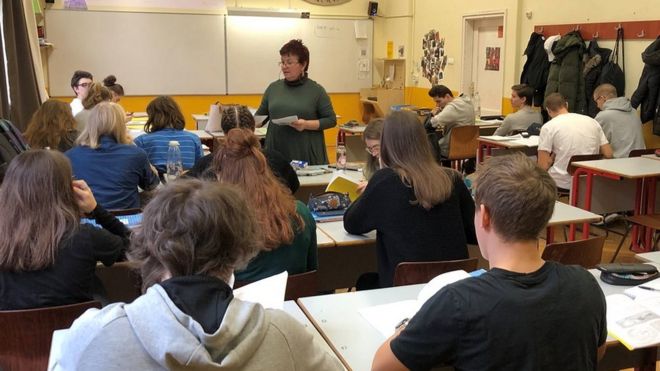There is growing opposition in Hungary to the government's modified national curriculum, which aims to instil a spirit of national pride in school pupils.
Critics - including many schools and teachers' organisations - draw parallels with the Communist period, when the governing party imposed its own ideology.
Szilard Demeter is a key figure in Prime Minister Viktor Orban's "culture war" on liberalism.
He is studying a big, dark cloth-bound volume when I enter his office at the Petöfi Literary Museum in Budapest - a book of essays celebrating the 80th birthday of the national conservative playwright, Ferenc Herczeg, in 1943.
The handwritten dedication at the front is from Hungary's nationalist wartime leader, Miklos Horthy, who led Hungary into an alliance with Nazi Germany.
Admiral Horthy wrote: "I give thanks to the Almighty that he gave Ferenc Herczeg to our nation, and preserved him in all his creative power."
Herczeg, alongside other nationalist-minded authors from the 1930s, has just been made compulsory reading in the new national curriculum, to be taught from September.
Mr Demeter says he was not consulted on the curriculum, but broadly approves of it.
"We must be able to hand our heritage on to future generations. If we have a clear idea of what we mean by family, work, respect, love of the homeland, then we're duty-bound to transmit that. That's what public education is about."
The same point is made, less poetically, by government spokesman Zoltan Kovacs.
"There's no such thing as a neutral education. Educational systems are about values… about teaching what we think are the values of Hungarian society. And among the values we very much adore are those heroes who helped us survive the centuries behind us."













0 Comments